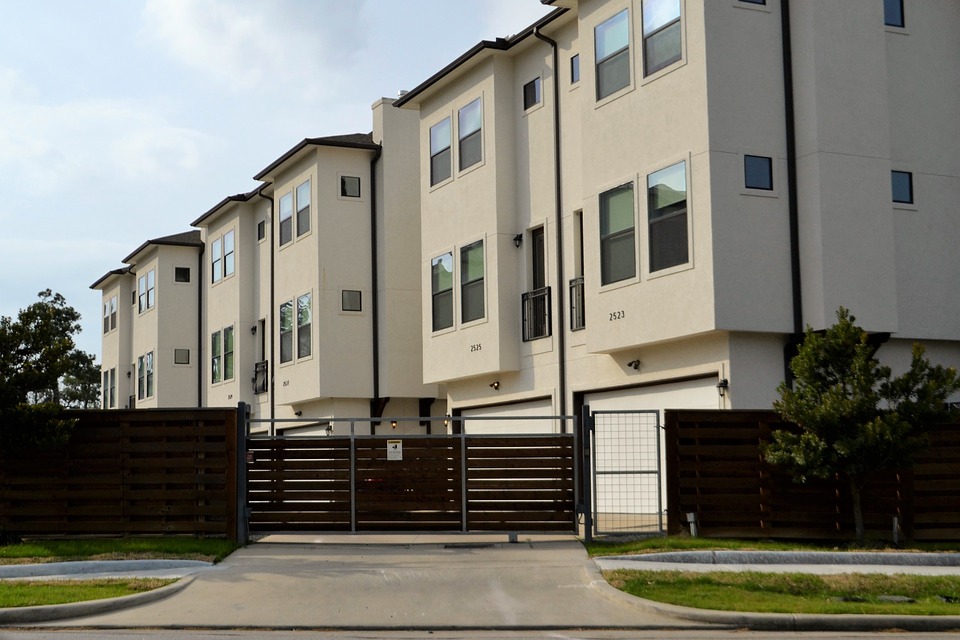
By Lindsay Street, Statehouse correspondent | As South Carolina lawmakers embark on an efficacy audit of the state agency charged with helping residents to secure housing, that agency is wrapping up its first affordable housing needs-assessment in 17 years.
Since the S.C. State House Finance and Development Authority, known as SC Housing, last reviewed housing needs in the state, the state’s population has grown by nearly 1 million people.
Never heard of SC Housing? You’re not alone. The little-known state agency offers housing loans and administers federal incentives for affordable housing. In the wake of the 2008 recession, it became best known for SC Help, a program that administers federal aid to homeowners facing foreclosure.
The S.C. House Legislative Oversight Committee will begin its review of SC Housing with a public hearing 10 a.m. July 22 at a location to be determined. The review is part of the committee’s mission of evaluating efficiency and effectiveness of state agencies.


S.C. Rep. Mandy Powers Norrell, D-Lancaster, who serves on the subcommittee told Statehouse Report she is “reserving judgment” about SC Housing, but added there were “some concerns” without elaborating.
Rep. Bill Hixon, a North Augusta Republican who chairs the subcommittee, did not offer a view of the agency’s management, but said he is looking forward to the review.
“I’m going to learn as much about them as I can,” Hixon said.
Another lawmaker on the subcommittee, North Charleston Democratic Rep. Marvin Pendarvis, said he has heard “rumblings” of mismanagement at the agency, but he has “not heard any reason to believe SC Housing should be under any additional scrutiny outside of the normal legislative process.”
Affordable housing is ‘a national crisis’
The growing problem of affordable housing made little headway at the state level during the 2019 legislative session.

Pendarvis co-sponsored a bill (H. 3998), which passed the House, that seeks incentives for workforce and senior affordable housing. It is now being reviewed by the Senate Finance Committee. He also sponsored a bill (H. 3091) aimed at offering housing incentives to developers, but it has languished in a House committee.
“It’s a national crisis and it’s affected South Carolina in a very real way. If we don’t do anything about it, we will see parts of our economy be affected by it,” Pendarvis said.
According to a March article from Pew Trusts, places like Lee, Williamsburg, Beaufort, Jasper and Marion counties have more than 15 percent of residents paying at least half their income for housing. In Charleston County, it is 17.2 percent, among the highest in the state.
“We know there is a need. You only have to look as far as Charleston to see what’s going on there. They are approaching a full-blown economic crisis in the tourism industry,” SC Housing spokesman Clayton Ingram said, adding that people can’t park or live within a reasonable distance of their work.
Pendarvis said the issue has grown so large, it’s caught the attention of 2020 presidential candidates.
It’s been 17 years since an assessment of the state’s housing needs has been completed. The 2002 SC Housing needs-assessment study looked at nine housing factors among all 46 counties, including how many households are spending 30 to 50 percent of their income on housing. According to the pre-recession report, about 15 percent of the state’s severely cost-burdened renter households were in Charleston County, which remains a focus of affordable housing issues today.
Ingram said the hope of the new study is to provide the agency with better “empirical data” about the crisis. John Tyler, SC Housing’s director of housing initiatives and innovation, said there is no timeline for when the report will be released, but he said it was a matter of “months, not years.”
What SC Housing does
The lawmakers on the agency review subcommittee said they are boning up on what the agency does before the public hearing in July.
 In addition to acting as an administrator for SC Help, SC Housing mainly acts as a mortgage bank, offering low-interest loans and helping with down payments, members of its staff said. The agency also works with developers to get federal funding for housing projects. The agency does not own any properties, and it is not an umbrella agency for housing authorities in the state, though it does administer Section 8 housing vouchers in seven counties.
In addition to acting as an administrator for SC Help, SC Housing mainly acts as a mortgage bank, offering low-interest loans and helping with down payments, members of its staff said. The agency also works with developers to get federal funding for housing projects. The agency does not own any properties, and it is not an umbrella agency for housing authorities in the state, though it does administer Section 8 housing vouchers in seven counties.
In the 2019-2020 fiscal year, the agency is projected to spend about $209 million total, but none of those dollars come from the state’s general fund. Staff did not disclose how much federal money is a part of that budget, saying that the “self-sustaining” budget is mostly funded by bond sales and interest rates.
“(Federal funding is) a moving target,” Ingram said. That’s because the agency may not do any projects within a federal program every year, he said. For example, its programs aimed at helping curb neighborhood blight are not currently ongoing, while a federal housing tax credit wasn’t a part of last year’s SC Housing budget, but is now a part of this year’s budget.
Norrell said she suspects some “disorganization” at the agency, especially when it comes to the its role as a “pass-through” for federal programs.
Tyler said that in his nine months at the agency, he has not seen a culture of mismanagement or disorganization.
“We know we have room for improvement and I think we can continue to improve internally by consistently examining the work we do,” he said. “(But) with all due respect, the audited financial statements of this agency … speak for themselves.”
The agency’s former board chair Donald Tomlin Jr. said the agency is “a great team.” On the question of whether the agency has a mismanagement issue, he responded:
“There’s always a tension between those who want the federal tax credits and the agency that has to administer the federal tax credit program to try their very best to equitably distribute tax credits to low-income housing producers,” he said.
A phone call to the current board chair, Robert Mettle, went unanswered.
Ahead on affordable housing
As the state awaits the needs-assessment report and SC Housing is audited, lawmakers have at least two affordable housing bills in committees to ponder before January’s return to session.
Tyler said H. 3998, the Workforce and Senior Affordable Housing Act, would be a boon to making housing more affordable.
“That would be a great step into providing additional sources for financing for affordable housing for the state,” he said.
Pendarvis said he is urging his colleagues to act on affordable housing sooner rather than later.
“The state has to recognize there is a problem and once it recognizes the problem, we will look to the agencies we have,” he said. “The state should be in the business of trying to increase the supply of affordable housing.”
- Have a comment? Send to: feedback@statehousereport.com
















 We Can Do Better, South Carolina!
We Can Do Better, South Carolina!